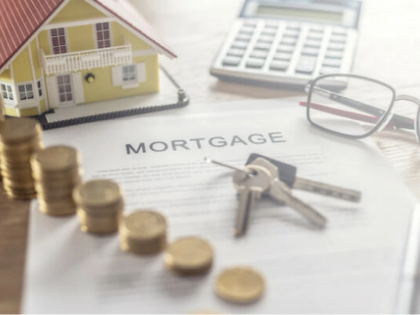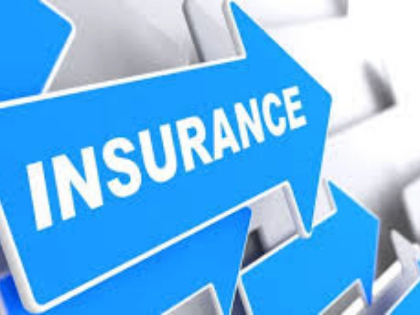Mortgages: Personalized Options for Your Particular Needs as a Homeowner
With a mortgage, purchasers can incur the costs of a new house without needing to pay cash for the whole amount of the purchase. A mortgage is a pledge to repay the principal amount of a loan plus interest that is enforceable by law. Borrowers who can demonstrate their financial capability through the application and underwriting process are eligible for mortgages. Banks, credit unions, and specialty mortgage lenders all offer mortgages.
Obtaining Prior Approval

Rates of interest
 Since few people have the money to buy a home altogether, mortgages are an essential component of homeownership for the majority of borrowers. There are numerous mortgage options available, each with a different set of conditions, interest rates, and loan terms. Principal and interest are typically paid each month, along with escrow payments for homeowners insurance and property taxes.
Mortgage lending can be impacted by shifting market conditions, and rising interest rates may worry homebuyers. Nonetheless, a borrower shouldn't allow a rate increase to stop them from pursuing their goals if they are prepared financially to purchase a home and can afford the higher borrowing costs.
With the mortgage rate tool from NerdWallet, borrowers may alter their rates to suit their unique situation, taking into account factors like geography, loan amount, and creditworthiness. Enter your ZIP code to get started, then choose the loan amount, down payment, and interest rate to view customized quotations from lenders. Our partners' information served as the basis for these tariffs.
Since few people have the money to buy a home altogether, mortgages are an essential component of homeownership for the majority of borrowers. There are numerous mortgage options available, each with a different set of conditions, interest rates, and loan terms. Principal and interest are typically paid each month, along with escrow payments for homeowners insurance and property taxes.
Mortgage lending can be impacted by shifting market conditions, and rising interest rates may worry homebuyers. Nonetheless, a borrower shouldn't allow a rate increase to stop them from pursuing their goals if they are prepared financially to purchase a home and can afford the higher borrowing costs.
With the mortgage rate tool from NerdWallet, borrowers may alter their rates to suit their unique situation, taking into account factors like geography, loan amount, and creditworthiness. Enter your ZIP code to get started, then choose the loan amount, down payment, and interest rate to view customized quotations from lenders. Our partners' information served as the basis for these tariffs.
Reductions in Advance
 When purchasing a home, a down payment is the amount of money you put up front, which is subsequently reimbursed by your mortgage. The financial implications of homeownership can be significantly impacted by the size of your down payment. For instance, making a larger down payment lowers your monthly payments and the amount of the loan you must borrow, but it may come with higher upfront costs.
Additionally, you can forfeit future flexibility for unforeseen costs like house maintenance and medical expenses if you make a sizable down payment by emptying your savings or taking money out of your long-term assets. In these situations, you could have to finance these expenses using credit, which might ultimately result in increased overall costs and debt with high interest rates.
A lot of lenders provide programs for down payment assistance to help buyers afford the high initial cost of homeownership. Both public and private entities may offer these programs, which might take the form of grants or forgiving loans.
When purchasing a home, a down payment is the amount of money you put up front, which is subsequently reimbursed by your mortgage. The financial implications of homeownership can be significantly impacted by the size of your down payment. For instance, making a larger down payment lowers your monthly payments and the amount of the loan you must borrow, but it may come with higher upfront costs.
Additionally, you can forfeit future flexibility for unforeseen costs like house maintenance and medical expenses if you make a sizable down payment by emptying your savings or taking money out of your long-term assets. In these situations, you could have to finance these expenses using credit, which might ultimately result in increased overall costs and debt with high interest rates.
A lot of lenders provide programs for down payment assistance to help buyers afford the high initial cost of homeownership. Both public and private entities may offer these programs, which might take the form of grants or forgiving loans.
Final Expenses
 Closing expenses can be a major obstacle to homeownership, even though down payments are frequently the topic of conversations and surveys among prospective homeowners. These costs can soon add up to a significant portion of the cost of buying a property.
Most closing costs are typically covered by buyers. These consist of costs for flood certification, lawyer fees, courier services, and money given to the mortgage business for starting your loan, among other things. In addition, you'll need to set up an escrow account and prepay your homeowners insurance and property taxes.
An origination charge, which pays for the expenses of examining your application and underwriting your loan, may also be included in your closing costs. In addition, the lender usually charges a fee for checking your credit report. To locate lenders that charge less for mortgages, compare rates. As part of your purchase agreement, you can also ask the seller to assist with closing fees; however, the seller's contribution to these costs is limited.
Closing expenses can be a major obstacle to homeownership, even though down payments are frequently the topic of conversations and surveys among prospective homeowners. These costs can soon add up to a significant portion of the cost of buying a property.
Most closing costs are typically covered by buyers. These consist of costs for flood certification, lawyer fees, courier services, and money given to the mortgage business for starting your loan, among other things. In addition, you'll need to set up an escrow account and prepay your homeowners insurance and property taxes.
An origination charge, which pays for the expenses of examining your application and underwriting your loan, may also be included in your closing costs. In addition, the lender usually charges a fee for checking your credit report. To locate lenders that charge less for mortgages, compare rates. As part of your purchase agreement, you can also ask the seller to assist with closing fees; however, the seller's contribution to these costs is limited.








